By Mary Wysong-Haeri
My legs and seat move with the horse, absorbing his gait. My sits bones move with his rhythm: one-two-three-four is walk; one-two, one-two, is the power of the trot; and the canter is a waltz, one-two-three, one-two-three, as wind whips past my ears. It whistles like a kiss.
The power of his body moves through me and I try to look like I am not moving even as every part of my body is in motion. There is contact in the reins to control his shoulders and my seat drives his hind legs. Each of my legs moves separately to control his gait and keep him straight. I am always afraid on my horse: he has a mind of his own and I cannot be certain of what he will do at any given moment, but I ride him, I love him, the more for that.
***
I was lost when the streetlamps came on. There weren’t enough of them and, frightened, I ran from one circle of light to the next. I had promised my mother that I would walk home from my friend’s house. I don’t remember the name of the friend or what she looked like or where we played, in her bedroom or the yard or both. I know the sun was low and the sky darkening when her mother sent me home.
I did not know there were so many blocks in the neighborhood. It was three blocks to the elementary school and my second grade class. My friend’s house was one block, turn one and then turn two, or was it turn twice and then go straight, or maybe go two blocks straight, then turn? My heart beat in my throat. The empty tree branches overhead rattled in the wind. A crow squawked above my head and made me jump.
The school was lost but I recognized our neighbor’s split rail fence. It was a fake fence, just demarcation between their front yard and the road, but it reminded me of the real split rails of my grandparents’ farm. I was heading toward it, my nose stuffy from crying, eager to cross the street and run to my house, when I heard my father’s voice.
“Mar—arr—y! Where are you? Mary, come home!”
Then, in only a slightly lower tone: “Goddamn it. Where is she? She better get here soon.”
“Marrrrry!”
Skirting the rail fence under the circle of lamplight, I approached our driveway from behind the gigantic rhododendron. The bush was the size of a tree, taller than the roof of our ranch-style home. My brothers and I liked to play inside it, spy on the neighbors and the postman who came to the house. I spied on my father. His face was red with rage. He retreated from the door for a moment, leaving it open, then returned. He’d been sipping at his scotch. My backside itched and tingled in anticipation, my feet wanted to run back out into the dark.
“Ma—arr—y!” Dad called. “Mary, come home!”
***
My horse listens with his ears tipped back toward me. His neck stretches long and low and his jaw flexes into a beautiful arch of submission and willingness. My hands work the reins, easy but firm. I keep contact with the horse’s mouth. I ask and let go, ask and let go, trying to be gentle, never rough. Between the reins and the power of my seat and leg, I create a box while also bending my horse’s body to maintain the circle. We canter waltz and we dance. Our relationship is an agreement, a question asked and answered. Though not always willingly, sometimes I must insist, command. I must be tough. Toughness is not easy for me, but I cannot let him know that. Instead, my seat keeps the rhythm, says do not quit, not matter what.
***
There is a playful spark in Ali’s eye. He reaches up to pick a fig from the tree. There are several hanging within reach and he pinches each one, choosing the softest. Ali has shown me how the softest figs are best and how to peel them: carefully digging your nail beneath the stem and pulling the skin back: repeat all around until a white, juicy globe with purple brains is left. Then bite. The fig’s sweetness fills the mouth, as full and ripe as sex.
My father joins us, sitting across from my future husband and me. The shade of the fig tree is deep. My father takes a big gulp of his rotgut wine. “Are you sure you want to do this?” my father asks. He is addressing Ali.
My father adjusts his chair, the legs scraping against the wooden deck. He clears his throat and refills his glass from the jug. He repeats himself in a tone that demands an answer. “Are you sure you want to marry her?” He doesn’t say my name though I am sitting right there. Mary means bitter in Hebrew but my father doesn’t know that. “Mary can be quite willful,” he says. “She can be hard to control sometimes.”
My head spins. I know it is not dizziness from the joint we smoked. I focus on the peels of the figs before me on the table. Ali will not answer my father with me there, so I gather the sticky detritus and leave.
***
Every part of my body moves with my horse. I pant, my heart racing because my body is working so hard. I slow my breathing, inhale, exhale, long breaths through my mouth, so that even as my muscles toil, they relax. If I stiffen and grip in my thighs or knees, my horse will break out of the canter into a thumping trot. The trick is to move each of my body parts individually. Left leg back signals stay in canter, my right leg at the girth says bend your body so that it travels in a straight line on the circle. My seat says go, push forward from the hind legs. My right hand keeps his shoulders in line. My left hand contains his energy, controls his pace. I am riding a test and it is almost over, but I don’t know if I will be able to finish. I am exhausted. I breathe hard, air expanding my lungs. Though my power is waning I continue to drive, saying do not quit.
***
Dad sits at the end of the couch, his hand resting on my dog’s back. It is liver spotted, the thin hairs above his wrist are few and white. With old age, his statue has shrunk, his once broad chest now almost concave, his wide shoulders slumped. Pepper, a lap dog, is curled, small and warm, beside him. To strangers Pepper does not look old because his fur is curly white. To know him though is to see that the skin beneath his groomed clip is freckled with hundreds of dark moles and that around his ribcage and under his chin there are numerous round fatty lumps. His little forelegs, once so eager, are bowed with arthritis, and he has missing teeth. When I look into the creamy cataracts of Pepper’s eyes, I see a desperate blue film.
Dad’s fingers gently thumb the arm of the couch, his fragile frame leaning forward toward the men’s conversation: talk of construction, urban density, and city projects, a discussion my father once would have dominated with bombastic bragging in a loud and booming voice. He listens now, no one turning to him, though he longs to be a part. These days Dad’s stories are quiet and they are the truth.
“The George Clymer,” Dad says when I ask the name of his WWII ship. “It was a troop transport. I worked on the engines, the carrier’s engines and the small engines for the landing craft.”
Because of the Internet I know more about the history of “Greasy George” than Dad does — originally christened the African Planet, the ship served from the invasion of French Morocco to the Vietnam War. But Dad knows more than the history. He knows the churning of the seas, the explosion of engine parts, a drunk doctor next door who cursed the Navy, and a typhoon that rocked the carrier all night, sending multiple ships to the depths. For most of my life, Dad told tall tales of his war experience where he featured as large as Paul Bunyan. Only in the last few years has he told the truth, though sometimes the number of lost ships is three, sometimes six. Dad remembers that any sailor who went on deck that night was swept away and for once he was glad of his work in the depths of the hull.
Sitting beside my father, I see his fingers folding into Pepper’s fur, two old men wanting love. I touch the papery thin skin of my father’s hand. I love wine, fine deep wine, not the hot, tannic bitter flavors of my father’s cheap Cabernet Sauvignon. I serve my fine wine, but my father takes only the smallest of sips. He wants Gallo or Almaden. I regret that couldn’t bring myself to buy some because I see a man who drinks solely for that switch that goes off in the brain, the one that soothes past sorrows and forgives weaknesses, the switch that changes the horror of steering a landing craft onto the shores of Iwo Jima into a complicated story that sounds like a B-movie plot.
***
I cannot be in my head when I am with my horse. I must feel his power, his agreement, his willingness to have me on his back. My horse carries me away from remembering what I cannot forget. When, finally, my horse and I come down the centerline, I push him to reach the imaginary apex of this trial. Firm and together, without seeming effort, he stops with his four legs perfectly square. This is not a horse show. We are alone in a dusty arena, only our reflection in the mirror to show us our perfect stance. I will tell no one of this. I only bow my head and gesture with my arm. A salute.
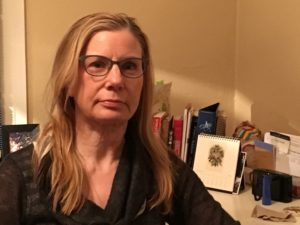
Born and raised in Oregon, Mary Wysong-Haeri’s first writing classes were at Maine Writer’s and Publisher’s Alliance. Upon returning to Oregon, Mary studied with the writing teacher, Tom Spanbaur, and then went on to receive an MFA in creative writing from Antioch University of Los Angeles. Recently, she has taken part in Lidia Yuknavitch’s Corporeal Writing Workshops. Mary currently lives in Portland, Oregon with her husband and an old, old dog.
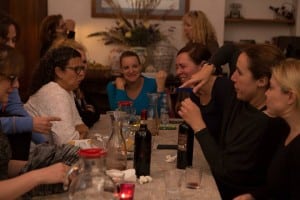
Join Jen Pastiloff in Tuscany Sep 17-24, 2016. There are 5 spaces left. This will be her only international retreat in 2016 and is her favorite retreat of the year. Email barbara@jenniferpastiloff.com asap. More info here. Must email first to sign up.

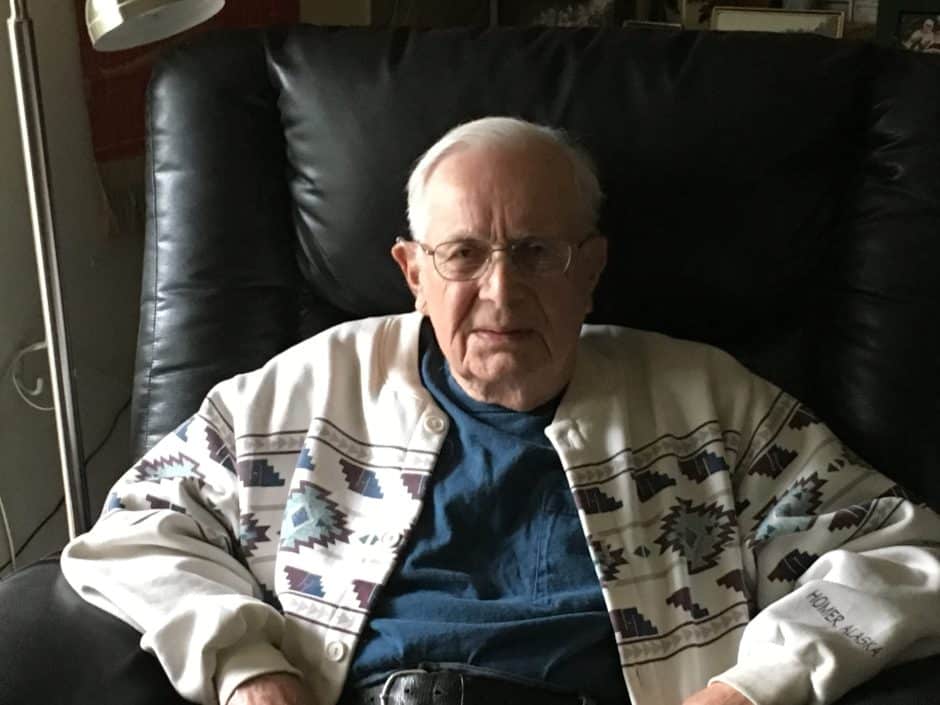

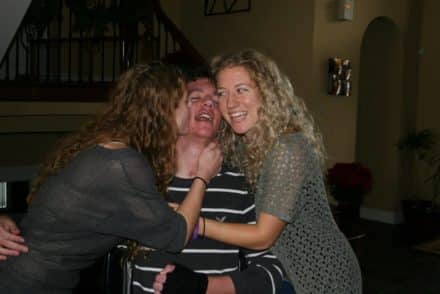
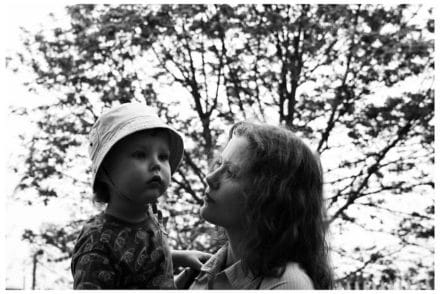

No Comments